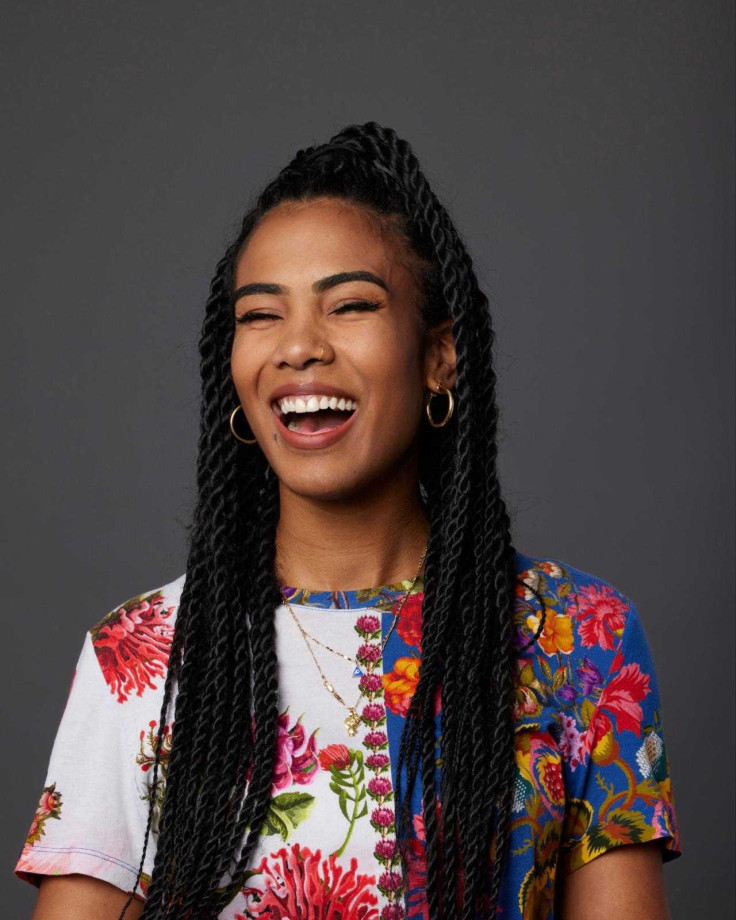This content is part of The Latin Times' first-ever Special Thematic Week focusing on the rise of Afro Latinos, an identity that represents 10% of all Hispanics and Latinos who live in the U.S., according to figures from Pew Research Center. Discover more articles and interviews we've prepared that explore Afrolatinidad, an idea that sits on the frontier of two minorities (Latinos and African Americans) with all the richness, possibilities and challenges that entails.

It's hard to know what exactly drives a person to become a performer. But Samantha Green can pretty much pinpoint when that moment materialized: sitting in front of the television in her family's house in Caracas, Venezuela. "I remember the first time I saw Naomi Campbell in a Michael Jackson video (In the Closet) and I felt so incredible. That's when I realized 'wow, I can do this'. I would dance nonstop to that song in my living room."
"It's important to see that sort of representation", she adds. "It's about understanding that black characters can be multidimensional too." We recently sat down with Samantha to discuss what it means to be an Afro Latina in Los Angeles, where she currently makes a living as a model, dancer & designer
The following interview has been edited for length and clarity.
What does it mean to be Afro Latino today in the United States?
The term "Afro Latino" is relatively new to me, I must've heard it like 5 years ago. From what I understand it's specific to black people with Latino heritage that live in the U.S. But from the moment I heard it I felt it defined me a lot. I now use it on my Instagram bio and whenever I speak about what I do. It's a label but one that is really helpful for me. I believe you have to be smart in this industry (acting) and if these labels help then I'm going to use them.
I feel Black History Month, for example, has helped draw attention to Afro Latinos and the full spectrum of "blackness". I feel it's really positive. It puts African culture on a pedestal and that's very cool. Representation matters, and that's what Black History Month showcases.

So being labeled Afro Latina has been good for your career?
Well, first of all, I'm self managed. I've gone to castings in which they're searching for Latinas and others for African American women. I'm kind of a fusion of both things. There was one recent experience I had that sums it up pretty well. It was for a short film and the director had created a profile pic through the use of an AI program called Midjourney. The prompt was something like "a sergeant in her mid-thirties that has a mixed ethnicity". And the resulting picture looked exactly like me! So I got the gig. AI seems to consider me an architype for mixed race. So that's a plus (laughs).
Are there any downsides to the Afro Latina label?
Well, there is an issue with my accent. Or rather the expectations with my accent. If they're casting for Latinas, then I can look the way I look but I have to sound like Sofía Vergara in Modern Family, you know? And if they're casting for a black woman, then they expect me to sound like someone from Brooklyn or Puerto Rico even. And that's just not me.
So there are two ways of dealing with it. Either I adapt, which is something I have to do a lot since it's a business after all. Or you can choose to say "this is how I am and when the opportunity comes then I'll be ready". That used to happen a lot in Venezuela, I'd try to fit in with what they wanted me to be and I'd end up being someone I'm not. So if you want to "fight" the system you have to try to stay true to yourself.

It's curious you mention stereotypes in Venezuela. Did you feel you didn't fit in?
I was always told that I had pelo malo (bad hair) and that I should have surgery on my nose. That was the feedback I would get when I would go to beauty pageants in Venezuela. I straightened my hair from when I was 13 years old to when I was 25. I didn't get a nose job because I couldn't afford it but I would ask my parents for one all the time.
I wouldn't say there's clear cut racism in Latin America but I feel it has to do with how we tend to masquerade everything with laughter. That's how we deal with difficult issues. It kind of takes the weight off some topics. Here in the U.S. it's not a joke. It's much more strict. My friends sometimes think I'm rude because of some of the things I say about race or they feel I'm putting myself down but that's because they don't understand how we deal with these things in our countries.
I will say, however, that I do feel much more comfortable with how I look since I moved to the United States.
Why do you think that is?
Well I'd never found so many different hair products and such a wide array of skin tones in makeup as I've found here. There are many advantages here thanks to the fact that it's such a big topic. There are more opportunities, in a way. In fact, I love the fact that being black is super trendy now, I find that to be super cool. Doors are being opened and acting is no exception. The first roles were more for slaves or a gangster's girlfriend but new narratives are being explored every day over here.
Just the fact that there is a Black History Month is very powerful. I'd love for Venezuela to have a celebration like that, that celebrates black people and Caribbean people. There are celebrations around drums and stuff like that but I'd love a festival that focuses solely on everything that African culture has given Venezuela and that those topics get talked about more openly. I feel that's something that Latin America is missing and the U.S. is doing well. Black History Month gives voice to great black artists, for example. And that has a great effect.
To learn more about Samantha Green follow her on Instagram (https://www.instagram.com/sammygreen.jpg/) and be sure to check out her website (https://www.greensammy.com/)
© 2025 Latin Times. All rights reserved. Do not reproduce without permission.





